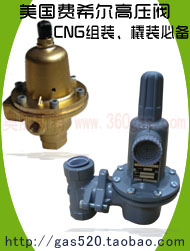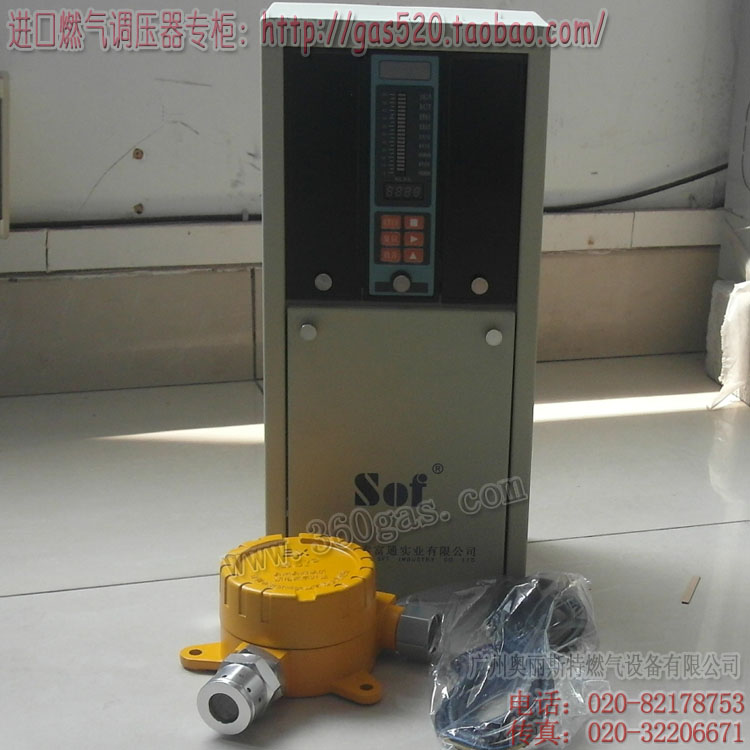位置:首页 > 燃气资讯 > Purdue Study Finds
Purdue Study Finds Buses Fueled by Natural Gas the Lowest-Cost Option
浏览次数 830 , 日期 2013-10-08 , 燃气设备 加入收藏
After undertaking a study of the Greater Lafayette Public Transportation Corp., also known as CityBus, energy economist Wally Tyner of Purdue University, a renowned U.S. research university located in Lafayette, Indiana has concluded the local bus system could reduce its costs and emit significantly fewer pollutants by converting its fleet to one powered by natural gas.
While the study was specific to the CityBus, the approach of fueling buses with compressed natural gas (CNG) could apply to similar municipal bus systems nationwide, said Tyner, an economist in the Department of Agricultural Economics.
“Because of the lower fuel price and pollution reduction, the CNG bus is considered to have good potential as an alternative vehicle used in the public fleet in the United States,” Tyner writes in the report Evaluation of the Economics of Conversion to Compressed Natural Gas for a Municipal Bus Fleet.
CityBus serves the adjacent cities of West Lafayette – home to Purdue University – and Lafayette. It has 72 buses and about 30,000 riders daily.
The objective of the study was to help CityBus find the most effective way to reduce operating costs and make the fleet “greener.” Tyner, graduate student Lin Yang and postdoctoral researcher Kemal Sarica performed economic and environmental analyses of the transit system using scenarios of buses fueled by compressed natural gas, diesel and a hybrid of diesel and electricity.
CityBus already runs some diesel-electric buses, which have a higher fuel economy than a standard diesel bus but considerably higher capital expense in the form of higher bus costs. So it is considering natural gas among its options. Most buses in the United States use diesel fuel.
The report concludes that buses fueled by natural gas would be the lowest-cost option for CityBus in a 15-year project that examined expenses of buying buses, maintaining them and keeping them fueled. The diesel-electric hybrid would be the costliest.
Even with the $2 million expense of building a natural-gas fueling station, the natural-gas system would cost $48 million over the span of the project, compared with $54 million for the diesel-electric and $48.5 million for the diesel-only, according to the report:
“Over the project lifespan of 15 years, the total cost of the CNG option is $468,404 lower than the diesel-only option in the base case, and has a range of 51–79% probability of a lower system cost. Moreover, if CityBus can get a grant for the CNG fueling station or the project life expands to 20 years, the probability would increase significantly.” (Report Page 9)
The analysis was conducted taking into account likely future diesel and natural-gas prices. Over 20 years, the analysis concludes that the natural-gas option has a 51-100% chance of being lower cost than the diesel option, depending on how price uncertainty is characterized.
“Moreover, from the environmental perspective, the implementation of CNG buses in the fleet would also produce less emission and provide benefit to the environment of the local society,” the report says.
Emissions of carbon dioxide and particulate matter would continually decrease over the project period if the CityBus fleet were gradually converted for natural gas. Carbon dioxide emissions from a diesel-electric hybrid system also would decrease but to a lesser extent, while those emissions from diesel-only buses would increase. Particulate matter from those two systems would remain about what they are now.
The report notes that production of natural gas in the U.S. has increased dramatically in recent years, particularly from the rapid growth in shale gas, and is expected to increase until 2035. It also says the price difference between crude oil and natural gas has grown larger since 2009.
But it also says transit companies are likely to make the switch to natural gas only when the additional capital costs, such as buying new buses and building natural-gas refueling stations, are covered by the savings in fuel costs over the life spans of the buses.
Officials of the transit system will consider the results of the report, said Martin Sennett, general manager of CityBus.
“Dr. Tyner was extremely helpful to CityBus in helping to formulate a decision on the pros and cons of each fuel choice,” Sennett said.
While the study was specific to the CityBus, the approach of fueling buses with compressed natural gas (CNG) could apply to similar municipal bus systems nationwide, said Tyner, an economist in the Department of Agricultural Economics.
“Because of the lower fuel price and pollution reduction, the CNG bus is considered to have good potential as an alternative vehicle used in the public fleet in the United States,” Tyner writes in the report Evaluation of the Economics of Conversion to Compressed Natural Gas for a Municipal Bus Fleet.
CityBus serves the adjacent cities of West Lafayette – home to Purdue University – and Lafayette. It has 72 buses and about 30,000 riders daily.
The objective of the study was to help CityBus find the most effective way to reduce operating costs and make the fleet “greener.” Tyner, graduate student Lin Yang and postdoctoral researcher Kemal Sarica performed economic and environmental analyses of the transit system using scenarios of buses fueled by compressed natural gas, diesel and a hybrid of diesel and electricity.
CityBus already runs some diesel-electric buses, which have a higher fuel economy than a standard diesel bus but considerably higher capital expense in the form of higher bus costs. So it is considering natural gas among its options. Most buses in the United States use diesel fuel.
The report concludes that buses fueled by natural gas would be the lowest-cost option for CityBus in a 15-year project that examined expenses of buying buses, maintaining them and keeping them fueled. The diesel-electric hybrid would be the costliest.
Even with the $2 million expense of building a natural-gas fueling station, the natural-gas system would cost $48 million over the span of the project, compared with $54 million for the diesel-electric and $48.5 million for the diesel-only, according to the report:
“Over the project lifespan of 15 years, the total cost of the CNG option is $468,404 lower than the diesel-only option in the base case, and has a range of 51–79% probability of a lower system cost. Moreover, if CityBus can get a grant for the CNG fueling station or the project life expands to 20 years, the probability would increase significantly.” (Report Page 9)
The analysis was conducted taking into account likely future diesel and natural-gas prices. Over 20 years, the analysis concludes that the natural-gas option has a 51-100% chance of being lower cost than the diesel option, depending on how price uncertainty is characterized.
“Moreover, from the environmental perspective, the implementation of CNG buses in the fleet would also produce less emission and provide benefit to the environment of the local society,” the report says.
Emissions of carbon dioxide and particulate matter would continually decrease over the project period if the CityBus fleet were gradually converted for natural gas. Carbon dioxide emissions from a diesel-electric hybrid system also would decrease but to a lesser extent, while those emissions from diesel-only buses would increase. Particulate matter from those two systems would remain about what they are now.
The report notes that production of natural gas in the U.S. has increased dramatically in recent years, particularly from the rapid growth in shale gas, and is expected to increase until 2035. It also says the price difference between crude oil and natural gas has grown larger since 2009.
But it also says transit companies are likely to make the switch to natural gas only when the additional capital costs, such as buying new buses and building natural-gas refueling stations, are covered by the savings in fuel costs over the life spans of the buses.
Officials of the transit system will consider the results of the report, said Martin Sennett, general manager of CityBus.
“Dr. Tyner was extremely helpful to CityBus in helping to formulate a decision on the pros and cons of each fuel choice,” Sennett said.








